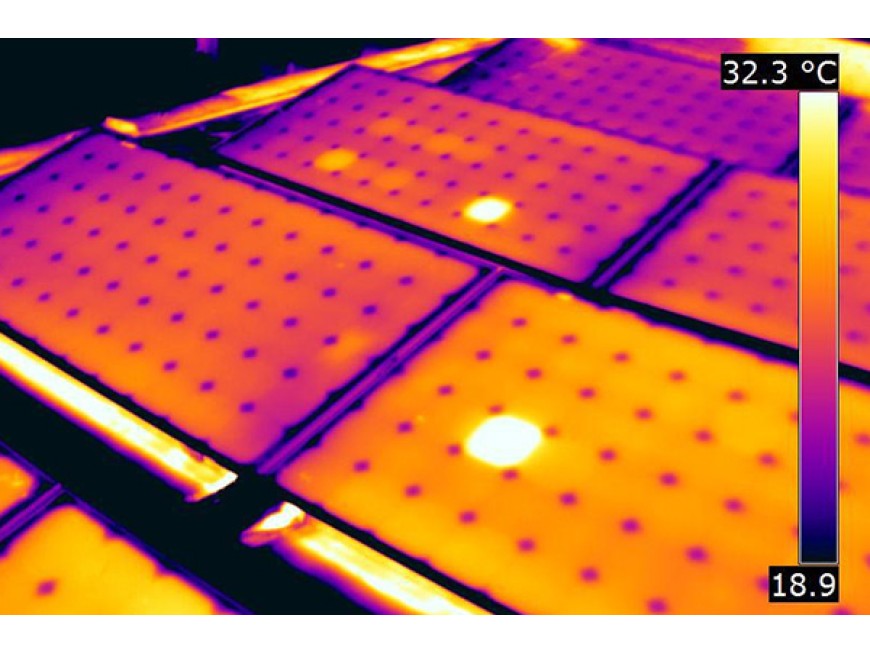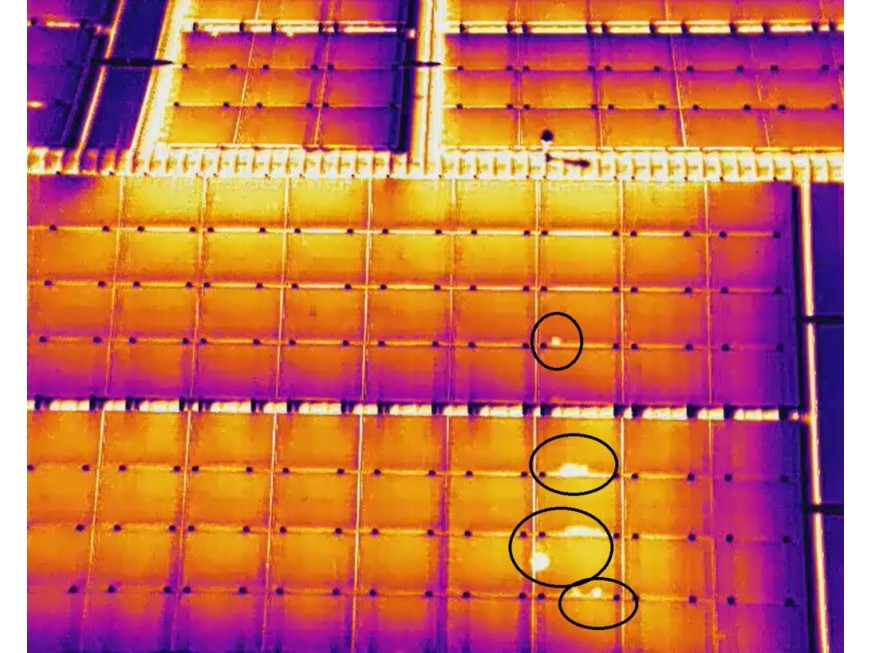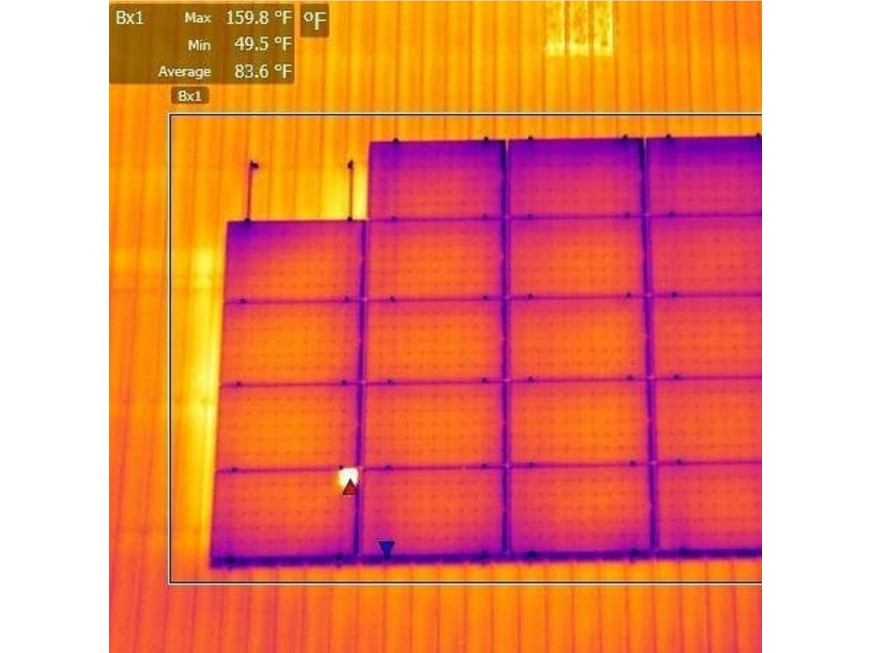Solar panel installations are becoming increasingly popular from both a private, commercial and governmental perspective amid a fall in installation costs and a long-term price rise in non-renewable energy sources such as coal, oil and gas. However, solar panels require regular maintenance, which is where thermal imaging can provide an efficient solution to many of the challenges posed.
Thermal imaging cameras are capable of showing a number of problems. such as defects in cells (impurities/gas pockets or cracks), temporary shadowing (dirt, pollution, humidity, bird droppings), defective bypass diode, or faulty interconnections.
Most problems will show as a hot spot or cold spot although defective bypass diodes display as a ‘patchwork’ pattern. As these problems can clearly be shown on screen, it makes it easy to scan large installations quickly. However, thermography only provides indicative results and a full electrical inspection must be carried out for confirmation. Nevertheless, thermal imaging should be the first port of call when checking new or existing solar installations.
Purpose of Solar Panel Inspection:
Solar panel inspection is conducted to assess the condition, functionality, and efficiency of solar panels. It helps identify any issues or potential problems that may affect their performance, such as defects, damage, soiling, shading, or wiring faults.
Inspection Frequency:
Regular solar panel inspections are recommended to detect and address any issues promptly. The frequency of inspections may vary depending on factors such as the size of the solar installation, environmental conditions, and manufacturer’s recommendations. Typically, inspections are performed annually or biannually.
Visual Inspection:
Visual inspection involves a thorough examination of the solar panels to identify any visible defects or damage. It includes checking for cracks, chips, hotspots, discoloration, loose connections, or signs of corrosion. Visual inspection also involves assessing the cleanliness of the panels to ensure optimal sunlight absorption.
Electrical Testing:
Electrical testing is an essential part of solar panel inspection. It involves measuring the electrical output of the panels using specialized equipment. This testing helps determine if the panels are producing the expected amount of electricity and if there are any issues with the electrical connections or wiring.
Infrared Thermography:
Infrared thermography is commonly used during solar panel inspections. It involves using thermal imaging cameras to detect any hotspots or abnormalities in the panel’s temperature distribution. Hotspots can indicate potential defects or malfunctions within the solar cells.
Performance Monitoring:
Solar panel inspections may involve performance monitoring to evaluate the actual energy output of the system compared to its expected performance. Performance data is analyzed to identify any deviations or inefficiencies that may require further investigation or maintenance.
Maintenance and Cleaning:
Solar panel inspections may also include maintenance tasks such as cleaning the panels to remove dust, dirt, or debris that can reduce their efficiency. Proper cleaning techniques and equipment should be used to avoid damaging the panels.
Reporting and Documentation:
After conducting a solar panel inspection, a detailed report is typically prepared, documenting the findings, including any defects, damages, or recommended actions. This report serves as a reference for future inspections and helps track the condition and maintenance history of the solar panels.
Benefits of Solar Panel Inspection:
Regular solar panel inspections offer several benefits. They help maximize energy production by identifying and resolving issues that may hinder performance. Inspections also contribute to the overall longevity of the system, as early detection and repair of defects can prevent further damage. Additionally, inspections ensure safety by identifying potential electrical hazards or fire risks associated with faulty panels or wiring.
Professional Inspection Services:
Solar panel inspections are often conducted by qualified professionals with expertise in solar energy systems. Hiring professional inspection services ensures thorough and accurate assessments of the panels, compliance with industry standards, and access to specialized equipment and techniques.
Solar panel inspection is a proactive approach to ensure the optimal performance, safety, and longevity of solar energy systems. By identifying and addressing issues in a timely manner, solar panel inspections contribute to maximizing energy production and the overall reliability of the system.






